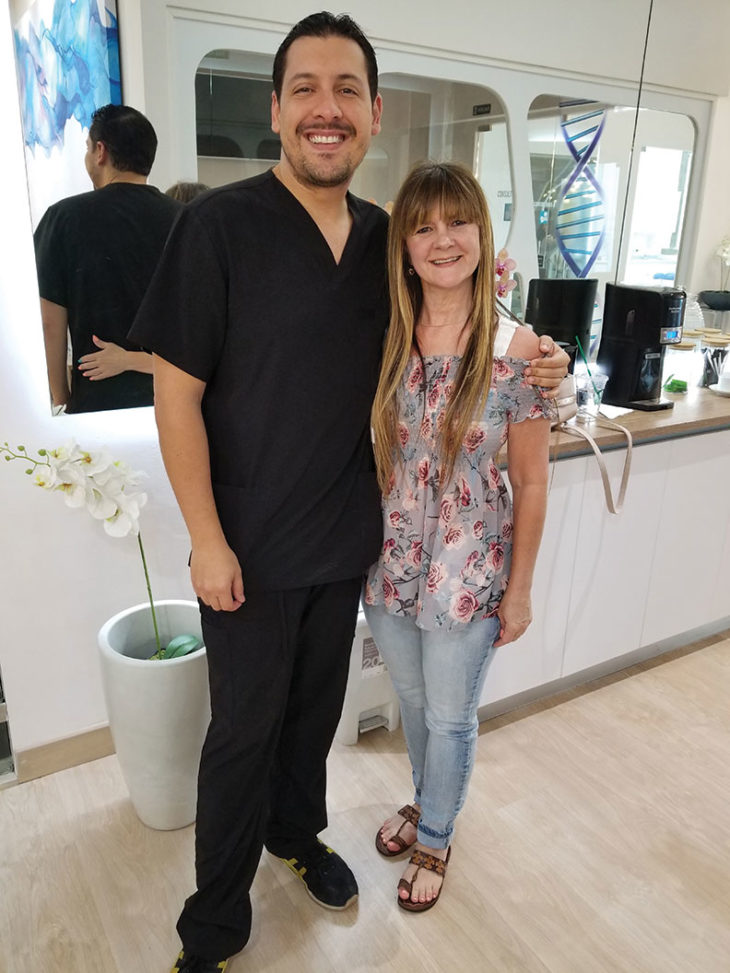Tens of thousands of women nationwide have reported problems ranging from rashes and insomnia to mood swings and muscle weakness.
For Trina Cuccia, breast implant illness — or BII — manifested as anxiety, depression, fatigue, thyroid issues and other debilitating conditions. Over time, the Diamondhead resident’s symptoms progressed to include joint pain, brain fog, hair loss, sinus infections, headaches, weight gain, food intolerances, inflammation, hormone imbalances, nausea and kidney and bladder issues. In February and March, she landed in the emergency room twice — leaving each time without answers.
“In March, I was praying that the Lord would reveal what was wrong with me, as I truly thought I was terminal and we just did not have a diagnosis,” Cuccia says. “I could barely get up and get dressed to go to work.”
The mother of three — a branch manager/mortgage loan originator for GMFS Mortgage — had a breast lift in 2002. She chose a highly recommended surgeon, who performed the procedure in Mandeville, Louisiana.
“I did it for myself, as I was not pleased with them after my childbearing years,” Cuccia says. “I lost a lot of volume, so in December 2003, I decided to have breast augmentation — again, for myself. I wanted to feel beautiful again when I looked in the mirror.”
Symptoms started appearing in 2006, which is when Cuccia says her “long journey of going to doctors without any true diagnosis” began. Her right implant began leaking a few years later, and her annual mammogram in 2009 showed some enlarged lymph glands in her right breast that required a biopsy.

“Praise God, all was OK, but the doctor never brought up that it could be from my implant, or mention concern (about) the implant,” Cuccia says. “Every year, I would go for my mammogram and they would say the right one was deflating but never made mention of any concern.”
Eventually, she came across a friend’s Facebook post mentioning breast implant illness, which prompted her to research the condition. In April, Cuccia traveled to Costa Rica to see Dr. Victor Urzola — listed among the top four micro-surgeons in the world for the procedure she sought — an en bloc capsulectomy. During this surgery, a doctor removes the scar tissue (or capsule) with the implant still inside, preventing any contamination to the body.
“Dr. Urzola no longer (performs) implants, and this was important to me — as he recognizes the dangers to a woman’s health,” Cuccia says. “(He) films/videos and takes pictures of the surgery and provides all of his patients with a copy of the en bloc procedure.”
Cuccia notes that in July, breast implant manufacturer Allergan issued a recall on Biocell textured implants and tissue expanders; she had saline-filled, textured implants made by Inamed Corp., which Allegan purchased in 2005. The recall comes after the implants have been linked to anaplastic large-cell lymphoma (ALCL), a rare form of cancer.
While breast implant illness remains a matter of debate within the medical community, the number of women claiming their implants made them sick continues to swell. One BII Facebook group now has over 90,000 members.
Cuccia’s healing journey is ongoing, and she tells others wanting breast implants to do their research, be aware of the risks and “learn to love your God-given body.”
“It’s a process detoxing the body from inflammation and autoimmune illness caused by the implants,” Cuccia says, “but (I’m) thankful to be on the lighter, natural side and loving my smaller breasts.”


